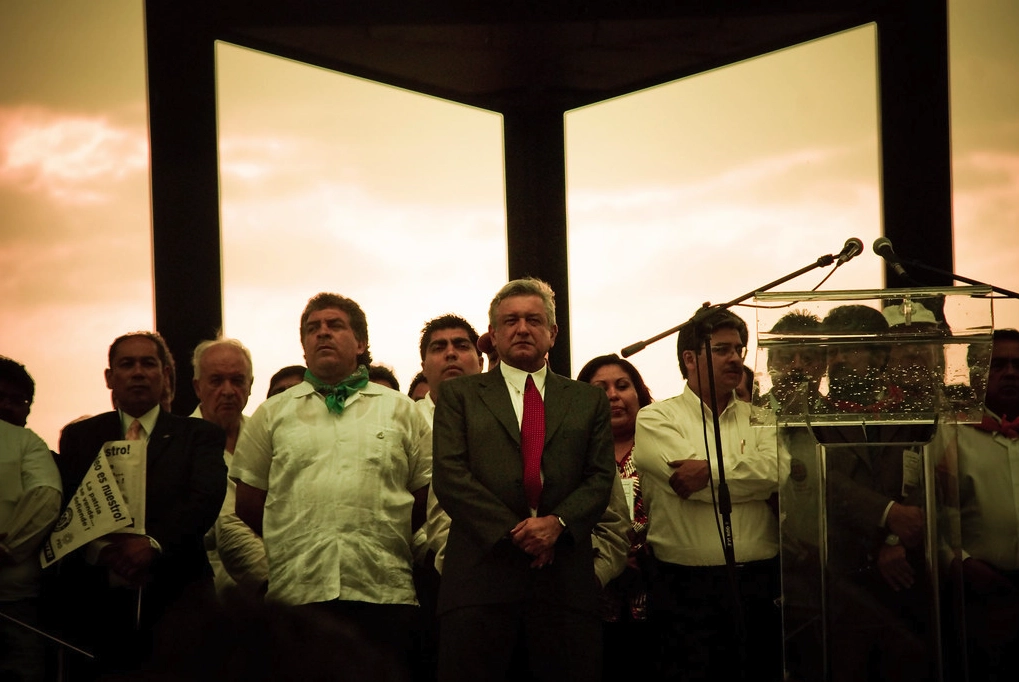Why did the President of Mexico, Andrés Manuel López Obrador, mention this week that the opposition is plotting a technical coup d’état via the Judiciary? Why does he do so without providing any evidence? Why has the National Electoral Institute (INE) not acknowledged receipt and launched a call not to intervene again in the electoral process? Could not he be the one plotting a way to keep power? The truth is that his systematic interference in the electoral process has been pernicious, resulting in electoral crimes.
This has nothing to do with freedom of expression. AMLO is not just another citizen. He is the President of the Republic. And ordinary citizens do have the right to freedom of expression, while the Constitution binds the president. Let us remember that when he took office as President he swore to “respect and enforce the Constitution and the laws that emanate from it”. Either he has a major confusion or he is acting to provoke a scenario of rupture of the rules of democratic coexistence.
López Obrador’s “morning conferences” have become the perfect scenario to violate the law. We do not know if with impunity because although there are calls from INE for the President to be respectful with the electoral law, there are also complaints from the opposition, which, in due time, the electoral tribunal will have to assess how much they violate the laws.
And the fact is that, beyond what the polls of voting intention say, those snapshots, we are facing what political scientist Adam Pzerworski identifies as “democratic uncertainty” due to the formation of two large electoral blocs: that of the ruling party that nominates Claudia Sheinbaum and that of the opposition that nominates Xóchilt Gálvez.
Now, according to constitutionalists and political scientists consulted by the newspaper El Universal, including Mauricio Merino, Francisco Burgoa and Javier Martín Reyes, it would be AMLO himself who is plotting a self-coup d’état if his candidate, Claudia Sheinbaum, does not benefit from the majority vote of Mexicans.
And it could be the Electoral Tribunal of the Judiciary of the Federation, the constitutional instance in charge of validating and qualifying the presidential election, who will come out to declare after disposing of the appeals filed due to the violations of the law that are not legal or that their candidate did not win.
In other words, the President is preparing to offend. And, as Mauricio Merino rightly points out, the president systematically violates the Constitution to the extent that he uses government resources even to promote the sale of his latest book, where he thanks the people of Mexico. And that is unconstitutional.
I repeat: the president is beholden to the Constitution, not to his moods and electoral preferences. It is not freedom of speech: it is something else, and that freedom is meant for mere mortals. So we must be attentive to his outbursts even from a reality that every day is more decomposed by the unstoppable violence which not only kills people’s lives but also their habitat: entire villages are being evicted for fear of death or, worse, for the loss of their families.
Article 29 of the Constitution establishes that in a situation of exception, the president may declare the electoral process suspended and continue in power extraordinarily as has happened in other countries (read, by the way, the revealing book How Democracies Die, by Steven Levitsky and Daniel Ziblatt, professors at Harvard University, who undertook the task of documenting experiences, as well as proposing institutional antidotes).
Unfortunately, if things can get worse, they are getting worse. What is happening in the streets and in the electoral bodies is shaping a scenario that puts democratic institutions to the test. And it is no small thing what is at stake in these elections. It is not just a few public offices but the validity of the democratic system. And that gives another character to the presidential election, and it is there where the words and deeds of the National Palace make sense, even beyond, in the basements of politics.
And it will be then when we will be able to give definitive answers to the questions with which we opened this article. Let us hope it is not too late.













